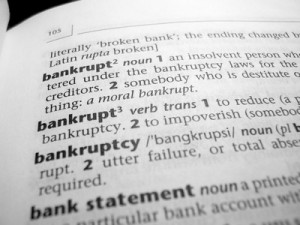 In Chapter 13 bankruptcy cases it seems like the trustee is always asking for a debtor’s tax return. Submitting returns to the trustee starts at the very beginning of the case. Before the 341 meeting the debtors are required to submit to the trustee tax returns for the last two tax periods.
In Chapter 13 bankruptcy cases it seems like the trustee is always asking for a debtor’s tax return. Submitting returns to the trustee starts at the very beginning of the case. Before the 341 meeting the debtors are required to submit to the trustee tax returns for the last two tax periods.
There are several reasons for reviewing these documents. First, debtors are required to file their last four years tax returns and submit the last two years to the trustee by the Bankruptcy Rules. Trustees review this information to confirm that the disclosures in the debtor’s schedules and statements are correct. Tax returns give a pretty good idea of where the debtor has been getting their money in past years and how much they have been paid. Discrepancies between returns and bankruptcy documents will inevitably result in additional documents being requested and additional questions. The trustee also wants to see these returns because any refund owed to the debtor but not yet received by the debtor as of the date of filing may be property of the bankruptcy estate, depending on local rules.
The trustee will continue to ask to see returns every year the debtor is in a Chapter 13 case. Future tax refunds the debtor receives while in the case may also be property of the bankruptcy estate and used to increase the plan base, depending on the local rules of court. In addition, if the trustee reviews a return and determines that the debtor’s income has increased then they may file a plan modification in order to increase the plan payment, assuming the unsecured creditors aren’t already being paid in full in the confirmed plan. When this happens the debtor’s attorney may be able to oppose the modification by filing new schedules showing that the debtor’s deductions or household expenses have already increased.
For more information about bankruptcy and tax returns contact a Frisco TX bankruptcy lawyer.